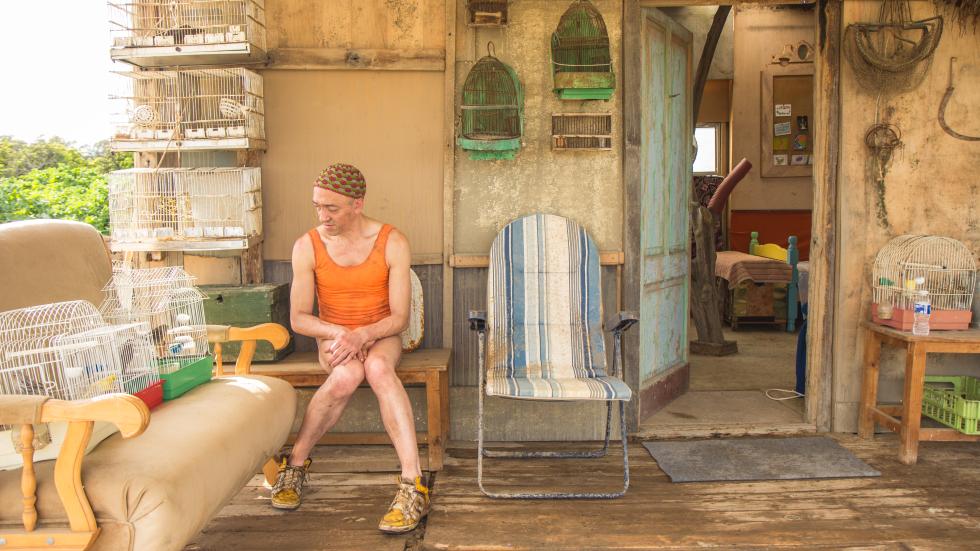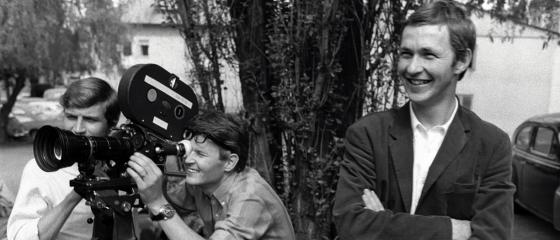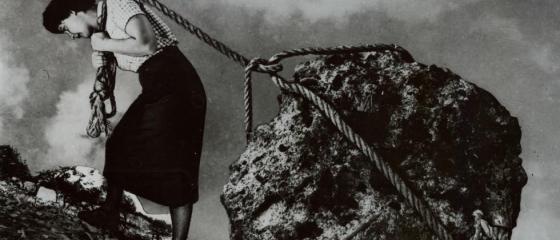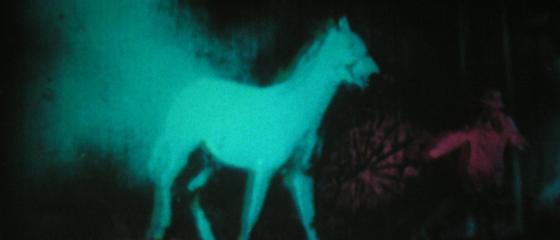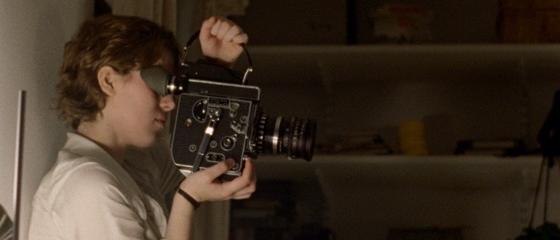A notable increase in the number of works selected, a greater commitment to fiction and the opportunity to have numerous world premieres mark this year’s feature film section of Andalusian Panorama. The section reflects the strong driving force behind the audiovisual industry in the community, with productions and co-productions that cut across genres and very different registers: from romantic comedy to post-apocalyptic realism; from the poetic and political essay to visual cartography. And from its diversity the contents of Panorama converge and dialogue perhaps more than ever with the other sections in the Festival.
Among the world premieres we have several fiction films such as SEGUNDA OPORTUNIDAD, by Álvaro de Armiñan. With a cast that includes such notable names as Gary Piquer, Cuca Escribano and Rosa María Sardá, among others, it is a critical social comedy that tells of the return of the protagonist to the Andalusian town where he was born, and of his attempt to reinvent himself with a risky business selling marijuana for therapeutic use.
Based on a novel by Pedro Andreu which he himself defined as between Mad Max, the work of Camilo José Cela and Tierra, by Médem (a definition that also fits the film), Antonio Donaire makes his debut with EL SECADERO, a harsh drama which over the course of its running time will gradually reveal its post-apocalyptic background. It surprises us with its voluntary attempt to explore new narratives and aesthetics without giving up a certain very well filmed local iconography.
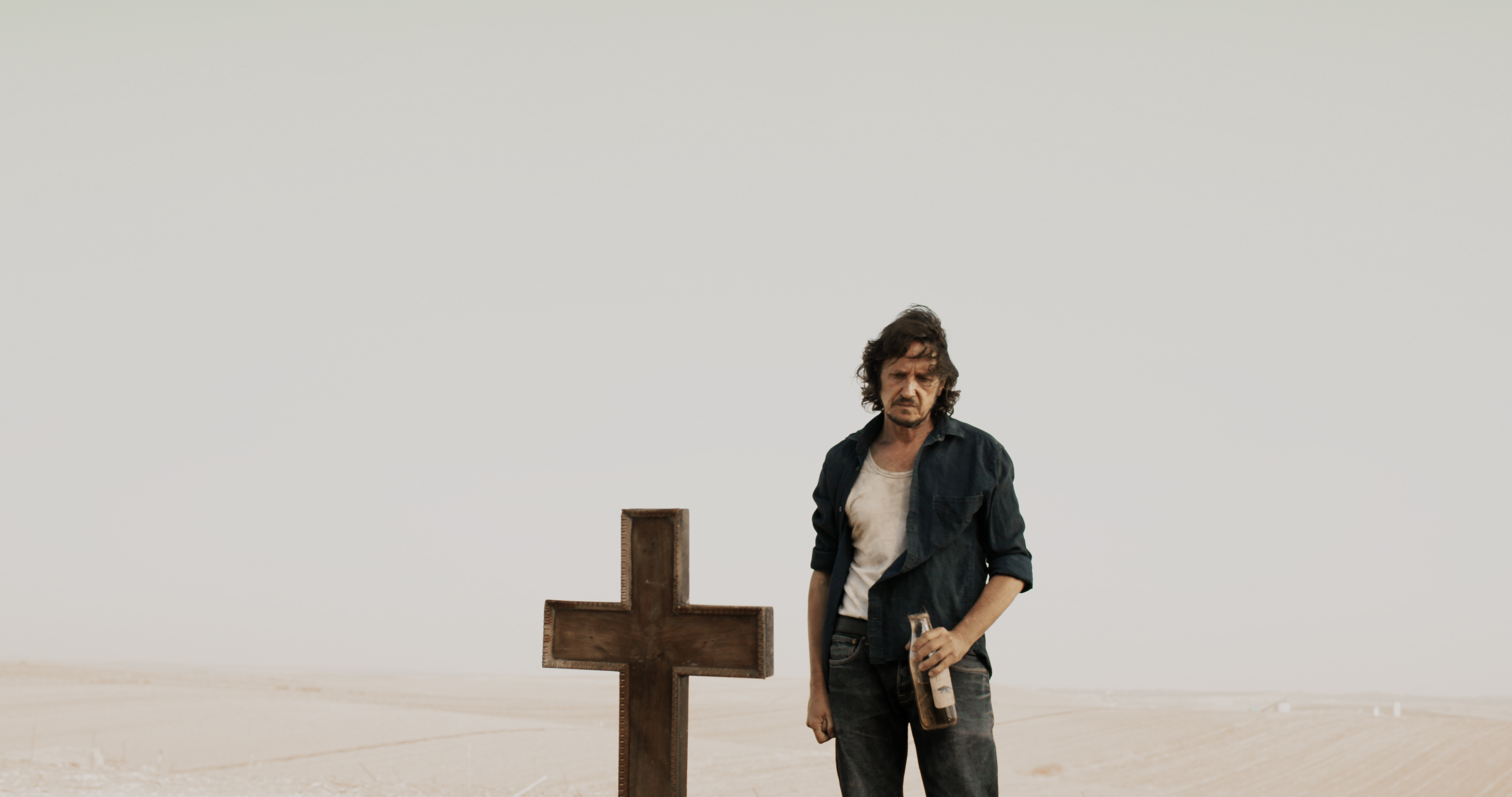
Ángel de Haro, from Almeria, also premieres his first feature, TRY, a story of friendship along the lines of the romantic comedy. Shot in New York, it keeps in almost continuous focus its two young protagonists, played with great self-confidence by Ana Loig and Sergio Moral. The formal care with which it protects its indie militancy produces the miracle of revisiting with fresh eyes the cinematic capital par excellence and two classic themes: the dizzying sensation of becoming an adult and commitment in personal relationships.
At the RTVA Gala, we will have the chance to see JAULAS, by Nicolás Pacheco, the Seville director who is also making his debut in features with this story of liberation produced by the experienced Maestranza Films. Its distorting and at times magic realism connects with some of the films by Emir Kusturica or Javier Fesser. And that correct, well achieved strangeness makes the film breathe and gives it an attractive identity.
Another Seville director, Jesús Ponce, will have an unprecedented double presence in Andalusian Panorama this year, with another two world premieres: the feature fiction LA PRIMERA CITA and the documentary LA ÚLTIMA TOMA. In the former, Ponce tackles “an amiable drama and a story of a couple and memories”, in his own words. And he remains faithful to a cast with whom he has had the greatest successes in his career, led by Isabel Ampudia, Sebastián Haro and Mercedes Hoyos.

La última toma, on the other hand, examines the life, work and personality of the Andalusian filmmaker Claudio Guerín. Ponce puts himself on both sides of the camera, as he also conducts the many interviews that go to make up the figure in the puzzle that is Guerín, notable for giving new life to Spanish audiovisual work in the last stretch of Francoism, a member of the generation of Víctor Erice or Pilar Miró, among others, and a legend prolonged by his early death in a filming accident.
Jesús Armesto returns to the Festival with LOS BURGUESES DE CALAIS. LA ÚLTIMA FRONTERA, a documentary that delves deeper into his interest in questioning cultural and geographic divisions. Here, he goes to a terrifying non-place that represents the humanitarian crisis of the refugees, the Calais “Jungle”, in the north of France. And he places it in relation to the historical memory of this French city and specifically to the famous incident with its burghers in the 14th century, at the start of the Hundred Years War.
With a fascinating 4K photography, the first timer Manuel Blanco draws in AL SUR DEL SUR a visual and sentimental cartography that documents the connection between landscape and population in a territory, the Bay of Cadiz, which for decades has suffered the battering of successive economic crises. The land, the sea and the estuaries which have sustainably fed the inhabitants of that area for a long time are thus the direct protagonists of this film which will be shown for the first time at the Festival.
LA BÚSQUEDA, directed by Mariano Agudo and Daniel Lagares, follows the clear line of social censure which has marked Intermedia Producciones since its beginnings. In this case, they look at the conflict that lasted for two decades in Peru between the State and Shining Path. The war and its sequels are profiled here through three very significant personal stories.
Rubén Darío’s journey through various Andalusian provinces in 1902 inspired TIERRAS SOLARES, the directing debut of Laura Hojman. And the poetry of the Nicaraguan author, a reference in literary modernism, impregnates from the photography to the soundtrack in this beautiful testimonial tale in which the recreations by actors are connected by contextualizing interviews.
Although it also proposes an audiovisual approach from an angle we could consider poetic, LA ESPAÑA PROFUNDA (DE ORTEGA GASSET A ROCÍO JURADO), directed by Isaías Griñolo, uses a more eclectic, conceptual language, close to the filmic essay. Starting from the work by Juan de Ávalos, sculptor of the controversial Valle de los Caídos, Griñolo offers a reflection on historical memory, with a couple of very specific questions: What should be remembered and how? The possible answers find a voice in the speculative territory of poetry.
Also faithful to the essay and her particular videoguerrilla vocation, another Festival regular, María Cañas, brings on this occasion LA COSA VUESTRA. This is a medium length film that establishes a certain parallel with a previous work of hers (La cosa nuestra) to return to the humorous censure of bullfighting and of the abuse of power in general, with animalist and feminist arguments transmitted through surreal dialogue amidst multiple scraps of popular audiovisual culture.
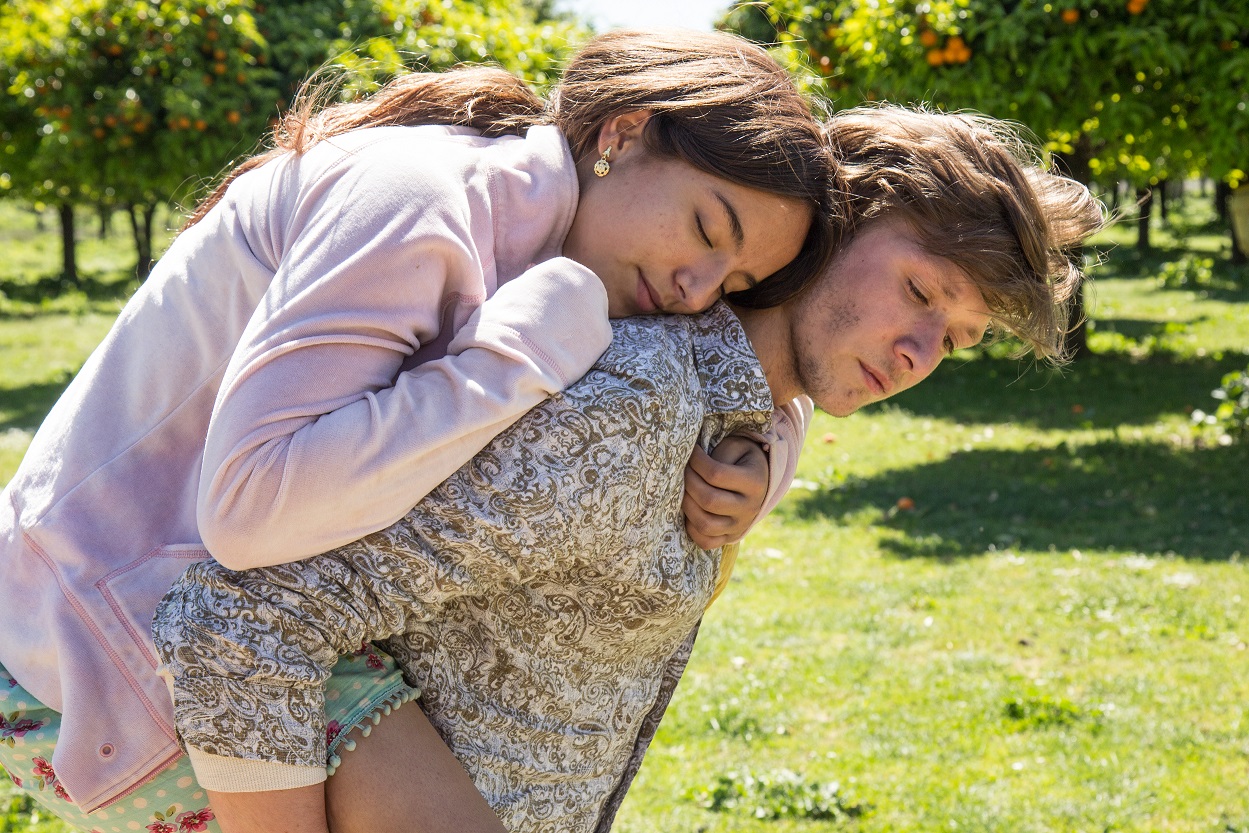
Once more the works which won awards in Imagenera are included in the section: 23 DISPAROS, by Jorge Laplace, first prize, and PORQUE LA SAL, by Nicolás Cardozo, second prize. Laplace, in his first feature film, looks at one of the most silenced, traumatic episodes during the Transition in Andalusia: the death of young Manuel José García Caparró, from Malaga, on 4th December 1977, at an historic demonstration in favour of Andalusian autonomy. And he does it combining certain certain generic codes with a strict testimonial exactitude. The short film Porque la sal is a valuable sensorial journey through some salt pans on the Almerian coast, mingling the textures of the landscape with the time as it passes the few beings who live in the area.
THE MULTIPLE PATHS OF FICTION AND NON-FICTION IN THE SHORT FILM
In the competitive short film section, Panorama also has more titles than in previous editions and shows in its sample of autonomous audiovisual works a greater diversity, a greater openness to hybrid formats and a certain tendency to explore the very broad territories of non-fiction while still cultivating fiction.
Directors present in other years, even with feature films, are now participating with brief proposals. That is the case, for example, with José Luis Tirado or Mateo Cabeza. The former offers in MADRE SANTA PUTA a revision of the roles attributed to women in the sacred writings, using a flamenco performance. The latter brings PUESTO 93, a simple, well made portrait in two shots of a street seller and her most immediate context.
Another two regulars in recent editions who have come back are: Alonso Valbuena with El PENALTI, the urban odyssey of an unemployed actor looking for a job to put food on the table, filmed with an ironic documentary distance; and Carlos Rivera with LOS TERRORES DE LYDIA, fiction in black and white that connects with some of his other films from an enigmatic naturalism that leaves the spectator with many unresolved questions at the same time as he manages to transmit an interpretive tension full of emotional suggestions.
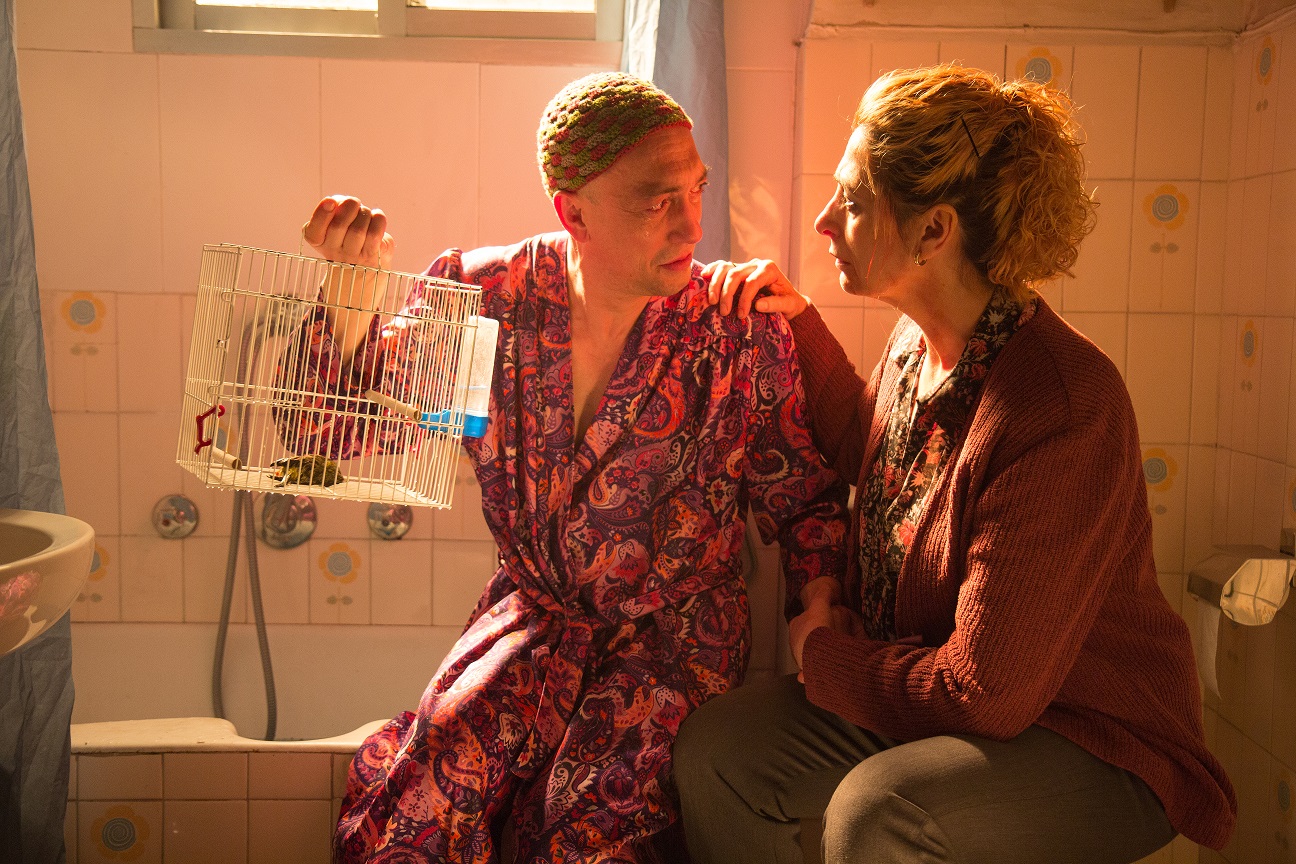
Daniel Zarandieta premieres LEY DE VIDA, an intense, well crafted domestic thriller, in which we see the great skill of both the director and his leading actor, Luis Callejo. Both BOYPLAY, by Édgar Burgos, an original school story with numerous resonances of genre cinema, and TODOS MIS PADRES, by Bernabé Rico, a charming social comedy featuring an abandoned baby, have an excellent production and a vibrant narrative pulse.
There is room for animation with two films which use 2D in very different ways: PRUDENCE, a delicious minimalist treasure from Concha Alonso that tells a story of loss and and search; and CAZATALENTOS, an elaborate piece by José Herrera about the meeting in the mythical Paris of the cabarets between an old show producer and a dancer who has a very special secret.
Among the most daring proposals are, for example, BOVINAS OVINAS (1-7), by Bruno Delgado Ramo, an exploration in super 8 of the world of sheep, their food and the products derived from rearing them, or AFTER-WORK, by Manuel Palma, an imposing video-artistic proposal that brings into play both a masterly use of representation space and a notable sound design.
Rocío Morato, Bruno Ojeda and Alejandra Perea compete with three other proposals that move in very different areas of non-fiction but they share a certain basis in the formal immediacy of domestic recordings. The first, with LAS CASAS QUE NOS QUEDAN, a brave family portrait that leaves very pertinent questions in the air about caring or about the family institution. The second, with MIRAR, a brief and also funny essay about the action that provides the title and about the relationships between the one who looks and the one observed. The third, VICTORIA, a complicit following of the protagonist and her friendship and party rituals, so common and at the same time so distinctive in the unprejudiced process that it gradually reveals to us.
Without fitting into the model of the classic documentary, MIRADA AL CAOS, by Castro Lorenzo, is an attractive approach to the work of photographer Manuel Ibáñez and it manages to integrate his work perfectly into the visual flow of the short. The video poem PARALYSIS, by Berta Fernández, chooses the conceptual opening and the format of a voiceover to explore through poetry such broad questions as identity or the impossibility of company. And HOTEL ROYAL CO, by Paula Villegas and Rakesh B. Narwani moves between a fashion film aesthetic and a certain preciosity that recalls the cinema of Wong Kar Wai to show the meeting between three archetypal female characters.
CANDELA and DOMESTICADO, both set in a slightly dreamlike fiction, are the proposals from Jonathan Martínez and Juan Francisco Viruega, respectively. The former, a pleasant story with very young protagonists in which a girl dreams of becoming a flamenco dancer. The latter, a rural tragedy with traces of Lorca in which a notably splendid photography (in square format) makes the most of the countryside and the sober performances.
SOLO DE TROMPETA, by Bernabé Bulnes, talks about loneliness, love, forgetfulness and the passing of time with great containment and a main protagonist very well played by Gregor Acuña-Pohl. And NACHO NO CONDUCE, by Alejandro Marín, also resolves a story of friendship and secrets with a solid control of the narrative and of the direction of the actors.
EL MIRAMIENTO, by Fany de la Chica, looks at the controversial value of virginity in gypsy weddings with a very fresh fiction. And the competitive section is completed with EL PRENAUTA, by Elías Pérez, a period drama that recovers the story of the legendary mariner Alonso Sánchez, from Huelva, who is said to have arrived in America before Columbus.
Out of competition, you can see three other short films: the romantic, musical comedy PLÁSTICO PLANCHADO, by Antonio J. Luque; the rural drama CAMPO, by Manuel Soriano, who last year won the Award for Best Project in the competition organised by the University of Seville and the European Film Festival; and the documentary COPLAS MECÁNICAS, by Hugo Espejo, which follows the creation process of two of the present references in flamenco heterodoxy: Israel Galván and Francisco Contreras, ‘Niño de Elche’.



